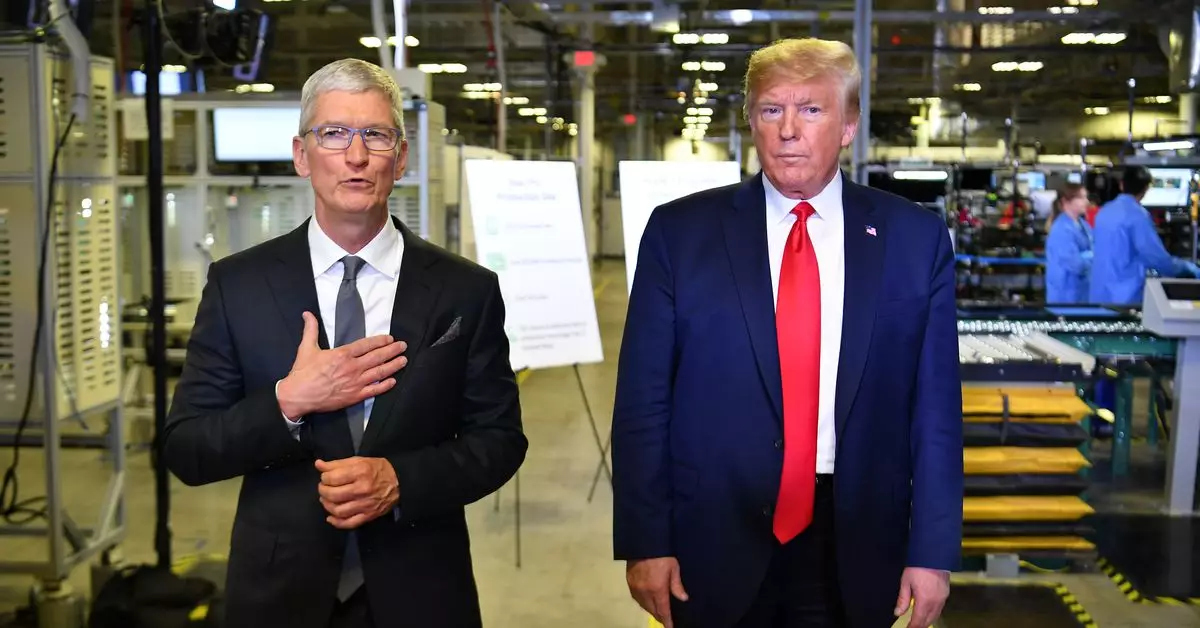In a climate where technology and politics increasingly intertwine, Tim Cook, the CEO of Apple, has demonstrated a unique approach to corporate diplomacy. His successful rapport with Donald Trump during the latter’s presidency showcases both the potential and the pitfalls of direct engagement between tech leaders and political power. Cook managed to achieve what many of his industry peers struggled to replicate: a personal relationship that allowed Apple to navigate the complexities of policy changes favorably.
At the core of Cook’s successful strategy was direct communication. Unlike many executives who depend on lobbyists or government relations teams, Cook opted for a personal touch. He reportedly initiated conversations with Trump through phone calls and shared meals, leading to a more informal and open dialogue. This approach emphasized personal connection over the formalities often associated with corporate lobbying. For Cook, this meant being able to articulate Apple’s interests effectively, framing inquiries around specific data points to maintain focus during discussions. By limiting the scope of each meeting, he avoided the common pitfalls of scattered dialogue that often leads to misunderstandings or diluted messages.
Cook’s strategy was not merely about influencing policy; it was also about aligning Apple’s business interests with Trump’s political agenda. By identifying overlapping goals, Cook fostered a cooperative atmosphere. He did not shy away from bolstering Trump’s image – for instance, when Trump claimed credit for Apple’s manufacturing expansions in Texas, Cook opted not to correct him, ostensibly to maintain goodwill. This reciprocal understanding allowed both parties to shine: Trump could highlight job creation, while Cook secured favorable tax and tariff conditions for Apple.
Cook’s unique approach to dealing with political figures has not gone unnoticed. In light of his success, other corporate leaders, such as those from Boeing and FedEx, are now reevaluating their strategies to include more direct engagement. They have recognized the advantages of personal diplomacy but face the challenge of replicating Cook’s finesse. For many, the route to direct engagement may involve flattery or aligning closely with Trump’s interests, much like what some tech leaders have attempted.
However, Cook’s method raises important questions about the ethical implications of such relationships. When corporate leaders engage too closely with political figures, there is a risk of appearing to prioritize corporate interests over public welfare. As seen in the tech industry’s historically intricate relationship with government, navigating this balance is fraught with challenges. While Cook managed to strike a delicate equilibrium, the paths taken by others could result in public backlash or skepticism towards the motives of their outreach efforts.
Tim Cook’s strategic and personal engagement with Donald Trump during his presidency serves as both a model and a cautionary tale for other tech leaders. While direct communication has shown to be effective in addressing corporate concerns, the implications of such relationships merit careful consideration. The delicate interplay between technology and politics will continue to evolve, and as leaders like Cook set the stage for corporate diplomacy, the line between influence and ethics remains ever significant.

